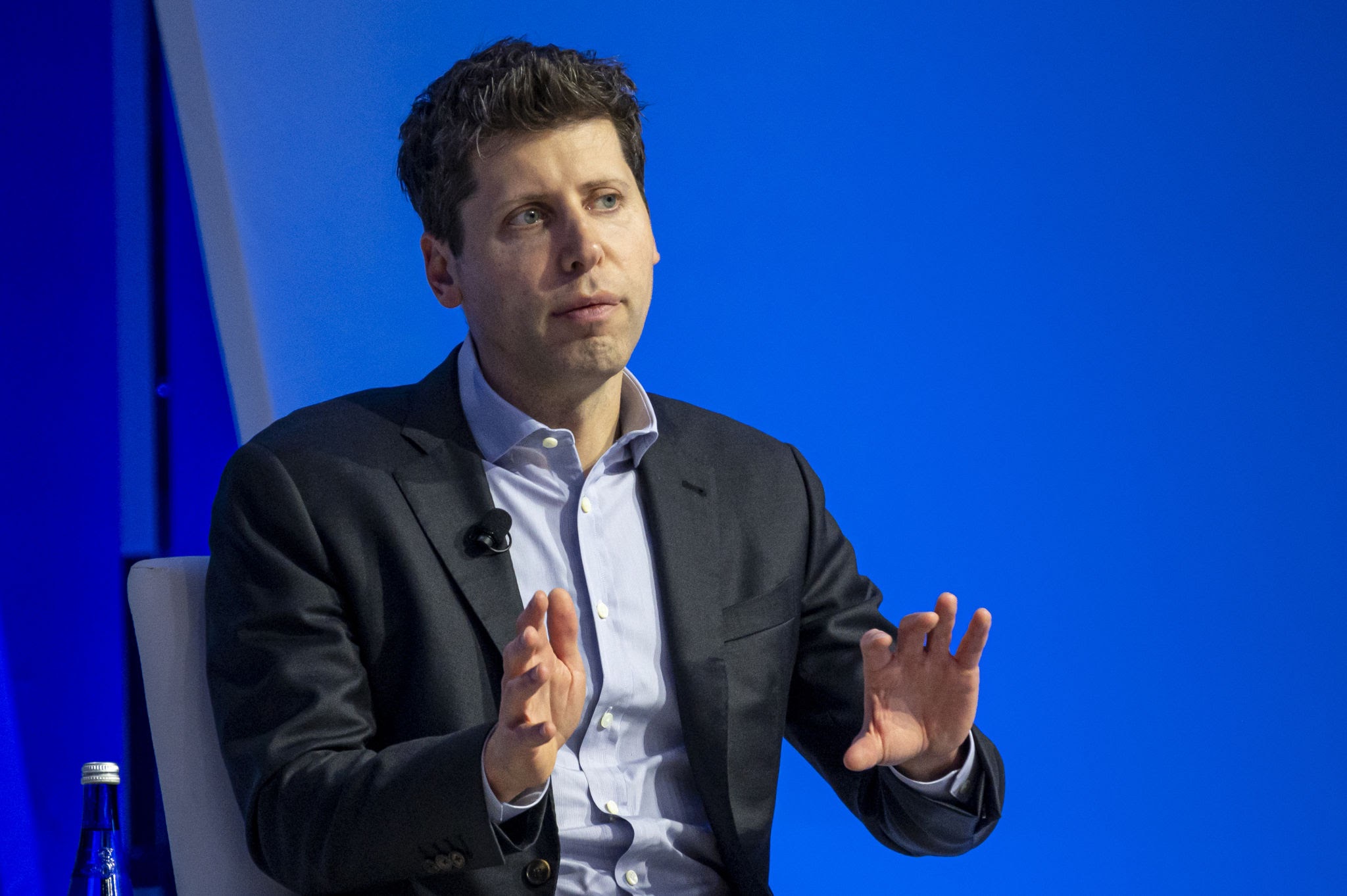The recent turmoil at OpenAI, where the CEO Sam Altman was initially dismissed, only to be reinstated following employee advocacy, paints a vivid picture of a leader’s profound influence on company culture.
This incident not only underscores the importance of outstanding leadership but also highlights the power of a positive employee culture.

Why should this matter to leaders? And what can be taken away from this scenario?
We’re glad you asked. What happened at OpenAI may sound complex, but it happens all the time at businesses of all sizes: startups, medium-sized companies, and even corporate or tech giants…like OpenAI.
When a CEO is terminated, and 500 (or 750) people on his team threaten to walk out in support…what does that say about the CEO? About the company culture?
While Sam Altman was reinstated (and the board responsible for the decision was replaced hastily), this situation could have taken a different turn. Perhaps if Sam Altman weren’t a good leader, his team wouldn’t have advocated for his return. There’s undoubtedly more to the story, but we’re here today to discuss what leaders can learn from this situation and why leading an aligned team is essential.
What Happened at OpenAI?
First things first…what happened at OpenAI in November 2023? Here’s a rundown:
OpenAI CEO Fired
The board of OpenAI, the company behind ChatGPT, fired CEO Sam Altman on November 17, 2023. This decision sent shockwaves across the tech industry, particularly in artificial intelligence, where Altman was considered a significant figure.
Following Altman’s dismissal, Mira Murati, OpenAI’s chief technology officer, was appointed interim CEO.
The reason cited for Altman’s firing was a lack of candor in his communications with the board of directors. This revelation came out in a review, leading to his immediate dismissal. There have been rumours citing ethics and other factors were involved, but at this time, there isn’t much credible evidence of this. Also removed from his role on the board was former OpenAI president Greg Brockman.
Employee and Public Reaction
The firing of Sam Altman led to a strong reaction from OpenAI employees. Hundreds threatened to leave the company en masse unless the board reversed its decision. This collective stance by the employees highlighted their support for Altman and indicated his positive impact on the company’s culture.
This also caused quite a buzz on LinkedIn, Reddit and other social media platforms. When ChatGPT briefly went down days after Sam’s dismissal, users posted (some with a sense of panic, others mockingly) that ChatGPT’s era was ending.
…Or, was at least about to face significant changes. AI has become vital in many workplaces; understandably, this has caused unrest for some and a sense of reliance for others.
In any case, the employees drafted and signed a letter questioning the board’s conduct and letting them know that “Microsoft has assured us that there are positions for all OpenAI employees at this new subsidiary should we choose to join.” They called for the board to resign.
So, OpenAI was left with a difficult decision – lose 60% of their employees (or more) – or reconsider their decision to terminate Sam Altman.
Reinstatement
Just days after his firing, in a dramatic turn of events, OpenAI announced that Sam Altman would return as CEO. This decision came after significant internal drama and discussions within the company. The company stated that they had agreed in principle to Altman’s return.
Company Board Overhaul
Along with the announcement of Altman’s return, there was an indication that the company’s board would undergo an overhaul, although specific details of these changes were not immediately clear. Microsoft is now a ‘non-voting observer’ on the OpenAI board.
This sequence of events shines a light on the significant impact a CEO can have on a company’s culture and the strong bonds that can form between leadership and employees.
Was the initial board decision made hastily? Was it made with proper reasoning at all? We might not know – but in any case, it’s a decision that cost the board members their positions.
Regardless of its reason, Altman’s firing and subsequent reinstatement, driven partly by employee advocacy, highlight the complex dynamics in corporate leadership and company culture.
The CEO’s Influence on Company Culture
A CEO is much more than a decision-maker; they can be the compass that guides a company’s cultural ethos. That seems to be true in the case of Sam Altman…and it’s true for all other CEOs, too.

Their leadership style directly affects employee morale and engagement, from communication to decision-making. The OpenAI incident exemplifies this, demonstrating how a CEO’s approach to leadership can deeply resonate with the workforce.
Why does this matter? And why are we, an HR firm, talking about this?
Because…
It’s no secret that people want to work for a good boss. If you’re good to your team, they’ll be loyal. A hardworking, considerate and trustworthy team isn’t possible without a leader with the same qualities.
To build your dream team, you must develop a strategy to get the ‘right people in the right seats.’ That can be hard if the right people are deterred or walk out the door regularly. High turnover, for instance, is a potential sign that you aren’t hiring the right people…and this can also be a sign of a leadership problem.
An A-team cannot exist without stellar leadership.
In Sam Altman’s case, it was clear that he impacted his team, considering the vast majority were ready to leave their jobs due to his termination. That speaks to his qualities and impression on the people he led.
If you’re a CEO or in a leadership role, ask yourself, ‘Would my team do this for me?’
This, of course, can be a hypothetical question. OpenAI debacle was unique; not everybody can simply walk away from their job in solidarity with their CEO, nor should they. Remember, they had been offered positions at Microsoft.
But, in any case, what would your team’s reaction be if you were (possibly wrongly) terminated as their leader? Would they feel upset if you were in a position similar to Sam Altman’s? If the answer is no, or if you think they’d be unphased in such a situation…this might be an opportunity for you to revisit your approach to leadership.
Employee Advocacy: What It Says About Leadership
The response from OpenAI’s employees to their CEO’s dismissal was telling.
This level of employee advocacy is a testament to a culture where workers feel valued and heard. It also highlights how effective leadership can engender a loyal and dedicated workforce willing to stand up for what they believe in and for those leaders who stand out among the rest.

Leadership changes, especially at the CEO level, can significantly impact team dynamics. The uncertainty and disruption can affect team cohesion and productivity. In the OpenAI scenario, the initial decision to let the CEO go likely caused ripples of uncertainty, which were only quelled by transparent communication and the eventual reinstatement.
Simply put, Sam Altman’s team fought for him and didn’t hesitate to voice their concerns.
What Qualities Make a Good Leader?
Most employees would agree that the number one trait they feel makes a good leader is that ‘they care.’ Trust and respect, along with a genuine, caring nature, are all qualities that leaders should have if they hope to have a positive impact on their team.
Sam Altman’s reinstatement suggests a high level of respect earned from the employees, indicating a leadership style rooted in trust and mutual respect. This is a crucial element in fostering a positive work environment.
A healthy, positive workplace environment will likely attribute this to the CEO and other leaders. You must embody and demonstrate the values you want your employees to uphold, and it’s clear that Sam Altman did that.
What does this come down to? It’s pretty straightforward: great leadership strategies…and well-established, modern HR strategies that support your team through every phase.
How Can Castle HR Help?
From interviews and onboarding to performance reviews, promotions and eventual departure – leaders must be present and equipped with modern strategies that make success possible.
At the end of the day, that comes down to morale and values (held by CEOs, leaders and ideally, all employees on board at your company) and HR.If you’re a leader who wants every employee to be on their A-game, don’t hesitate to contact us. Whether you need guidance regarding organizational culture and values, leadership training, compliance, complex terminations, or anything else, our Fractional HR Professionals are eager to get in your corner. Let’s connect.

Lyndsy has been working in the HR realm for over two years and has experience in content management, ghostwriting and copywriting. She holds a Bachelor’s in English and Cultural Studies and considers herself a lifelong learner and passionate storyteller. Regarding modern HR, Lyndsy believes businesses can stand out as ‘top destinations’ for talented people by adopting a people-centred approach and fostering a strong culture; that’s one of the reasons she was drawn to Castle HR!